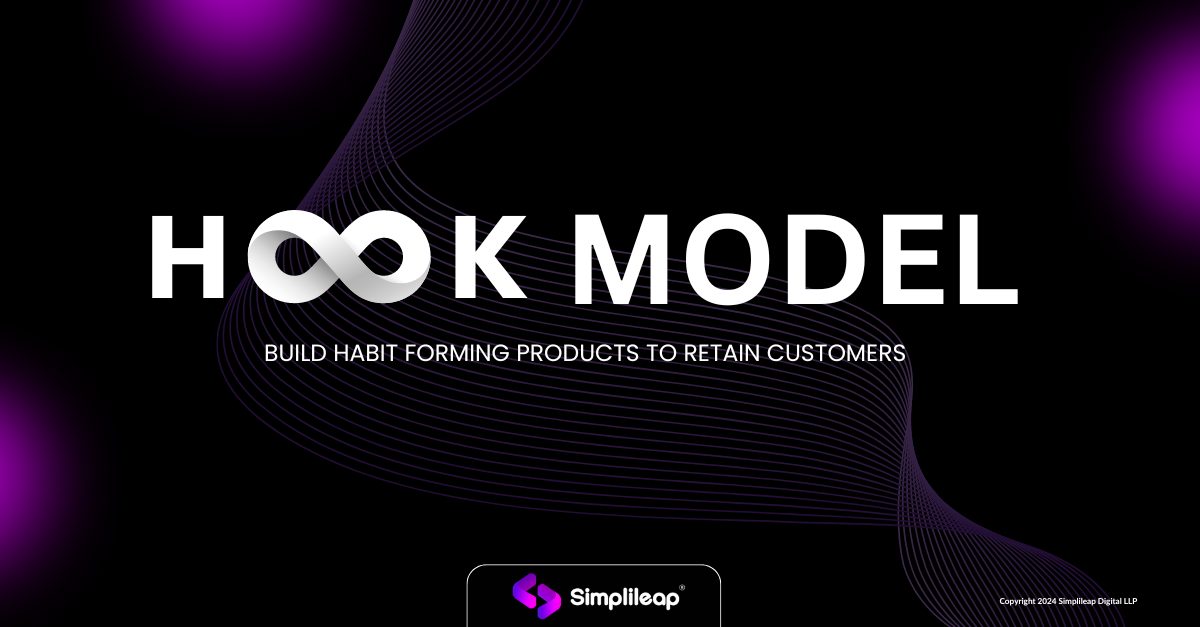
What is a Hook Model?
The hook model is a framework based on user behavior that aims to create habitual products that bring users back for more. That way, you’ll increase user retention and optimize your product for high-repeat use.
The hook model is popular in the social media and gaming industry, Where the objective of their products is to keep customers coming back to them. In other words the customers have regular interaction with the product.

How Hook model works
The model consists of 4 stages. These are trigger, action, variable reward, and investment.These 4 stages create a habit loop with the customer base.

1. Trigger
Triggers are the call to action. These can be internal or external thoughts, events, prompts that make people take action. Triggers are what make the user engage with the product and they can be either internal or external.
Best examples of triggers are social media notifications, Each notification issued is designed in a way to trigger a specific action of the user. This makes the user open an application and engage with the product. Doing this action again and again puts the user in a habit forming loop and eventually becomes addicted to the product.
There are two types of user triggers in the hook model: External and internal triggers.
Internal trigger
An internal trigger is an intrinsic need to use the product. Feeling to use a product induced by different human feelings like boredom, frustration, Need belong to an internal trigger.
Eg: Feeling to watch instagram when bored sitting at a cafe waiting for a person.
External trigger
External trigger are social, situational cues that make a customer use a product. This includes notification, advertisement and so on.
Eg: A notification of a comment on your instagram post that makes the customer open the app and take an action to reply or react to the comment.
2. Action
The action is what customers do in response to the trigger in anticipation of a reward.
Eg: You look at the reel shared by your friend after receiving a notification.
3. Variable reward
Variable reward is where the user receives a reward for completing the action.By providing unpredictable and varied rewards, users are more likely to become hooked and keep returning for more.
Eg: Likes, comments, reactions, personal rewards like going up on the leaderboard in a game, and so on.
When the user is presented with a reward for an action the dopamine system in humans is activated where the user get a pleasant feeling or a sense of achievement and so on or progress and so on. This makes the user hooked or addicted to the product.
4. Investments
The investment is the effort the user puts to get the feeling of variable reward again into a product or service.
Eg: Posting another reel after your previous reel had a great reach and likes and comments.
Integrating Hook Model into UX
Designers can add rewards into the product which will keep users coming back to the product. Designers can do a user research on where the trigger points are to keep the users coming back to the product.
For any further queries regarding hook models, feel free to reach out to us at info@simplileap.com.

I’m a UI/UX designer based in Bangalore, India. I’ve enjoyed turning complex problems into simple, beautiful and intuitive designs.

